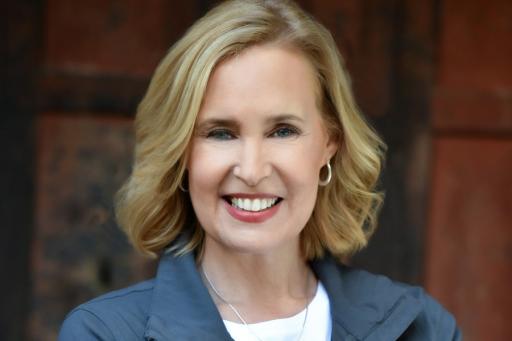Americans Forfeit 236 Million Vacation Days Annually

| DENVER (Jan. 28, 2020) – It sounds crazy, but it's true: The average American worker donates an average of $571 in work time to their employer by not using up all of their vacation days, per new research from the U.S. Travel Association. All told, the American workforce forfeits 246 million earned vacation days annually in what amounts to a $65.5 billion gift to employers. The study found that, while Americans increasingly earn more vacation days (an average of 23.9 per year in 2018 compared to 23.2 a year prior), they're using comparatively fewer of them each year. More than half (55 percent) of Americans leave vacation time on the table at the end of the year – totaling 768 million vacation days - and the average American worker only uses about 70 percent of his or her paid time off. "You would never say, 'Thanks, but no thanks,' and give part of your paycheck back to your boss. But that's exactly what Americans do when they don't use their hard-earned vacation days," said AAA Colorado spokesman Skyler McKinley. "Plain and simple: Using your vacation days is good for you, good for your company, and good for the economy." By the NumbersWhile the overall average number of days off used increased to 17.4 – building on a positive trend that began in 2014 – on the whole, Americans could be taking half a week more vacation each year. While older Americans take more time off than younger age groups, millennials devote a greater share of their vacation days to travel (63 percent). The majority (83 percent) of Americans want to use their time off to travel – but they're only using half of their vacation days to do so. The most popular motivations to travel among American workers are to avoid burnout (28 percent), spending time with friends and family (23 percent), or for the holidays (12 percent). All told, if Americans devoted all of their vacation days to travel, it could generate an additional $151.5 billion in travel spending – benefiting local businesses and regional economies – and create 2 million American jobs. Planning Makes a Difference Those who plan their vacations in advance are significantly more likely than those who don't to use their vacation days to travel (76 percent to 50 percent). In fact, more than half (56 percent) of planners have taken a vacation in the last six months, compared to just 36 percent of non-planners. Nearly one-quarter (23 percent) of non-planners have not taken a vacation or trip in the last two years. Americans who plan vacations tend to be happier in general – with everything from their personal relationships to their health and well-being to their job. 82 percent of planners report being "very or extremely" happy with their personal relationships, compared to 68 percent of non-planners. Similarly, 63 percent of planners are very or extremely happy with their physical health and well-being compared to 51 percent of non-planners. They're also more likely to like their company (61 percent vs 50 percent) and their job (61 percent vs 49 percent) than non-planners. January 28: National Plan for Vacation DayTo encourage Americans to plan and use their time off to vacation, the U.S. Travel Association, AAA, and other partners celebrate "National Plan for Vacation Day" during the last Tuesday in January - when workers can plan their vacation days for the rest of the year. To help employees get their vacation days on the calendar, the U.S. Travel Association has created a Vacation Planning Tool. After entering the number of days off they earn, users can plot out their trips or vacations for the year, export to their work or personal calendars, and share with their friends, families, and co-workers. "When you plan a vacation, you give yourself something to look forward to – and many, many health and professional benefits by taking that break when your time off arrives," McKinley said. "Buy the ticket, and take the ride. The numbers are clear: You'll be glad you did." 2020 AAA Travel ExpoLooking to plan a vacation but don't know where to begin? You're in luck: Join AAA Colorado's travel experts this coming Friday, January 31 and Saturday, February 1 at the 2020 AAA Travel Expo at Empower Field at Mile High . This two-day travel event features over 60 exhibitors, cruise companies, convention and visitors bureaus, hotels, and more – including world-renowned travel experts. MEDIA AVAILABILITY: The following experts will be available for interviews on Thursday, January 30 and Friday, January 31. Contact Skyler McKinley at smckinley@colorado.aaa.com to learn more or to schedule an interview. Media tickets are available for the duration of the Travel Expo. |

Patricia Schultz Patricia Schultz is the author of the #1 New York Times bestsellers "1,000 Places to See Before You Die" and "1,000 Places to See in the United States and Canada Before You Die." A veteran travel journalist with over 30 years of experience, she’s written for Frommer’s, Berlitz, and Access travel guides, as well as the Wall Street Journal, Condé Nast Traveler, and Travel Weekly, where she is a contributing editor. Her home base is in New York City, but good luck finding her there. |

Anne McAlpin A nationally recognized travel expert, author and packing guru, McAlpin has been inspiring travelers for over 25 years as a guest on Oprah, The View, CNN and PBS. Anne has traveled to over 80 countries and 6 continents experiencing all types of travel, from ocean and river cruises to adventure travel to a solo trip around the world. She continues to travel the world and host workshops based on her best-selling book, "Pack It Up! The Essential Guide to Smart Travel." With her wealth of travel experience, Anne has designed her packing workshops with one goal in mind: to make travel easier and more fun for everyone! At our AAA Travel Expo, you’ll learn how to pack the essential items for your dream vacation without lugging around a heavy bag. |

Denise Landau Denise Landau is one the world's most respected polar conservationists. She is the President and CEO of the 501(c)(3) conservation group “Friends of South Georgia Island” and is a Trustee for South Georgia Heritage Trust. She additionally serves on the Board of Governors for the American Polar Society and is the former Executive Director of the International Association of Antarctica Tour Operators. Denise was the spokesperson for the tourism industry at Antarctic Treaty Consultative meetings for 12 years. As a result of her many years of work within the industry, the US government named a glacier located in the Antarctic Peninsula in her honor: the “Landau Glacier”. |
| Methodology Ipsos conducted an online survey January 22- February 3rd, 2019 with 1,025 American workers, age 18+ who work more than 35 hours a week and receive paid time off from their employer. These data were weighted and scaled. Oxford Economics used the Ipsos survey results and data from the Bureau of Labor Statistics (BLS) Current Population Survey to estimate historical levels of vacation activity. Total unused paid time off was projected using Bureau of Economic Analysis (BEA) employment data, adjusted by the share receiving paid time off. The potential economic impact was developed using a per diem spending approach based on data from TNS, U.S. Travel Association and the BEA Travel and Tourism Satellite Accounts. |